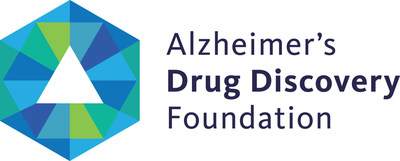Subject: TRI
Alzheimer's Drug Discovery Foundation Clinical Trials Report Shows Notable Shift from Amyloid Approach
NEW YORK, July 10, 2019 /PRNewswire/ -- The Alzheimer's Drug Discovery Foundation (ADDF) released a new clinical trial analysis report that shows researchers are now developing drugs for various targets associated with aging biology ? moving beyond traditional amyloid and tau approaches.

There are 102 potential treatments for Alzheimer's disease in clinical development with the majority (74%) focused on novel targets beyond amyloid and tau, according to the report. More than half (63%) of these potential treatments are in phase 2, when a drug is further evaluated for safety and tested for efficacy for the first time. The ADDF has supported nearly 20% of these clinical-stage drugs.
As the field shifts toward these new approaches, many of the new treatments being investigated are focused on targets associated with aging biology. This clinical trial report reinforces findings of a recent review published in Neurology®, which underscores a scientific strategy based on the biology of aging as an effective approach to prevent and treat Alzheimer's disease.
"Given that aging is the leading risk factor for Alzheimer's disease, the ADDF has long focused its attention to better understand why the aging brain is vulnerable to Alzheimer's disease," said Howard Fillit, M.D., Founding Executive Director and Chief Science Officer of the ADDF. "We are supporting a diverse pipeline of drugs aimed at neuroinflammation, vascular problems, synapse loss, and metabolic and mitochondrial dysfunction, among other aging malfunctions."
Dr. Fillit noted biomarkers (measurements of biological processes) are critical to advancing clinical research as the field develops more non-amyloid and non-tau drugs. "More affordable and accessible biomarkers, such as a blood test, eye scan, or digital tool, will help to ensure that drugs are hitting their intended targets and being tested in patients most likely to respond to the drug," he explained.
Last year, the ADDF created the Diagnostics Accelerator, a $50 million research initiative with funding from leading philanthropists including Leonard Lauder, Bill Gates, Jeff and MacKenzie Bezos, among others, to fast track the development of biomarkers and diagnostic tools for Alzheimer's disease and related dementias and help to advance the development of more targeted treatments.
"Alzheimer's is a complicated disease that can be caused by many factors," added Dr. Fillit. "Like other diseases of aging including cancer, diabetes and heart disease, it is likely a combination of drugs addressing multiple target pathways will be needed to effectively treat Alzheimer's. Combination therapy through precision medicine is ultimately the goal."
The ADDF's survey of the clinical trial landscape of Alzheimer's drugs is based on the federal website ClinicalTrials.Gov. The findings focus on drugs that are disease-modifying to slow, stop, or possibly reverse the disease once cognitive symptoms are present, as well as drugs that treat behavioral symptoms, such as agitation, and drugs that can prevent cognitive decline in at-risk people before a diagnosis.
Alzheimer's disease affects nearly six million people in the United States and about 50 million globally. With a growing aging population, the Centers for Disease Control and Prevention projects the burden of Alzheimer's disease will nearly triple to 14 million people by 2060. New, effective treatments could delay the onset of Alzheimer's by five years reducing the number of people with the disease and cost to society by about 40% respectively by 2050.
About the Alzheimer's Drug Discovery Foundation
Founded in 1998 by Leonard A. and Ronald S. Lauder, the Alzheimer's Drug Discovery Foundation is dedicated to rapidly accelerating the discovery of drugs to prevent, treat and cure Alzheimer's disease. The ADDF is the only public charity solely focused on funding the development of drugs for Alzheimer's, employing a venture philanthropy model to support research in academia and the biotech industry. Through the generosity of its donors, the ADDF has awarded over $115 million to fund more than 590 Alzheimer's drug discovery programs and clinical trials in 18 countries. To learn more, please visit: http://www.alzdiscovery.org/.
SOURCE Alzheimer's Drug Discovery Foundation
These press releases may also interest you
|
News published on and distributed by:



